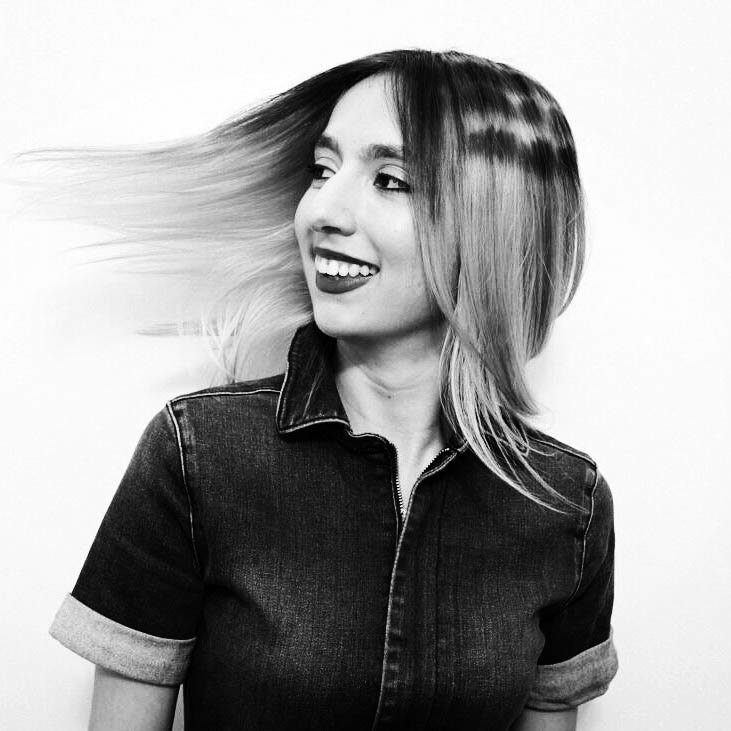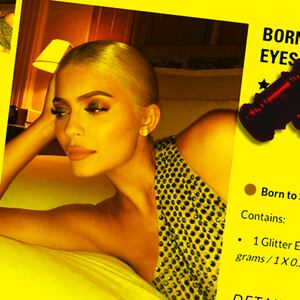“At 21, Kylie Jenner Becomes The Youngest Self-Made Billionaire Ever,” the digital cover of Forbes proclaimed today, noting that even Mark Zuckerberg needed two more years to make the list back in 2008 at 23.
In a portrait accompanying the story, Jenner could not have looked more different than young Zuck did for his debut Forbes profile. Clad in a crocodile-printed suit, pale pink turtleneck, and nude stilettos, with signature pink acrylic nails in frame, Jenner is decidedly not the hoodie-wearing tech wunderkid of the mid-aughts.
Instead, Jenner fully owns Kylie Cosmetics, a three-year-old company worth $900 million by Forbes’ estimate. Her fortune is around $1 billion. In 2018, a distribution deal with beauty retail giant Ulta helped to increase Kylie Cosmetics revenue by 9 percent. (Kylie Cosmetics did not respond to The Daily Beast's request for comment.)
Though Forbes classifies her empire as “self made,” Jenner’s rise has not been meteoric. As was the case when Forbes first profiled her in 2018 with the moniker of success, many have questioned the true definition of the term, given Jenner’s famous family.
Last year, Dictionary.com threw its hat into the debate, retweeting a photo of Jenner on the cover of Forbes with the caption, “Self-made means having succeeded in life unaided. Used in a sentence: Forbes says that Kylie Jenner is a self-made woman.”
And again, predictably, with today’s news that Jenner has made her first billion all by herself, as Forbes insists, many were out for blood-red lipstick. Jenner built her fortune on the backs of her deep-pocketed family, some said. No, she did so by ripping off indie brands along the way, others insisted. It was both, more still chimed in.
Forbes tweeted a diplomatic defense of sorts, writing alongside a photo of Jenner, “Having a self-made fortune means you didn’t inherit it. But some entrepreneurs have had to climb farther than others to get on the #ForbesBillionaires list.”
Jenner has been in the public eye since 2007, when her family’s reality show Keeping Up With the Kardashians debuted. She was 10 years old. In the years that followed, Jenner did what many Gen Z-ers did, cruising Snapchat and Instagram. Unlike the rest of her generation, however, Jenner’s Instagram following quickly grew to a mind-boggling 128 million.
“It’s the power of social media,” Jenner told Forbes. “I had such a strong reach before I was able to start anything.”
“Anything” began in 2014, when Jenner pooled $250,000 of her earnings from modeling deals with brands like OPI, PacSun, and Steve Madden to enlist the Oxnard, California-based Seed Beauty to create the first of her lip kits.
The brand incubator, which was founded by sibling duo Laura and John Nelson, claims to be able to create a product in just five days. “Industry-wise, Jenner can be attributed to the rise and success of fast beauty, which is basically fast fashion for the beauty space,” Alison Gaither, Beauty & Personal Care Analyst at market research firm Mintel told The Daily Beast.
The Kardashian-Jenner clan have a long and complicated history with fast fashion retailers, with Jenner’s half-sister Kim Kardashian often the victim of retailers like Fashion Nova knocking off her designer looks.
Kardashian has been a vocal champion against fast fashion, speaking out last month after a vintage Mugler gown she wore to a gala was copied by Fashion Nova in less than 24 hours and sold for $49.99.
“It’s devastating to see these fashion companies rip off designs that have taken the blood, sweat and tears of true designers who have put their all into their own original ideas,” Kardashian wrote on Twitter.
Fashion industry watchdog Instagram account DietPrada speculated that a mole in Kardashian’s team could be the one leaking designs to copycats.
Conspiracy theories aside, if you take the Kardashian-Jenners at their word: fast fashion is a blight upon the creative genius of designer houses. Jenner’s fast beauty business scheme? Fair game.
Jenner told the Evening Standard that her decision to launch with lip products was “the most authentic thing I’ve done in my career,” and inspired by her “insecurity” regarding the size of her mouth growing up.
There was a more sordid reason Jenner’s first drop of $29 lipsticks sold out in a minute. Jenner’s own large mouth had inspired a viral “challenge” where young participants blew up the size of their mouths by sucking in air from a shot glass. Dermatologists everywhere clutched their necks in horror.
But fans leaned in. “Kylie is really authentic,” said Sarah Barnes, a digital strategist at product intelligence platform Trendalytics. “Part of what makes her so popular is how she engages with her followers. She’s her own model, doing swatches of eyeshadow on her own Instagram. The power is there and it’s undeniable.”
Barnes noted that Jenner’s lip kits changed the way that beauty products were sold. “In 2016, the traditional makeup market was down 1.3 percent, but independent brands [like Kylie Cosmetics] were up 42.7 percent,” Barnes shared. “Even brands like Nars and Marc Jacobs began selling lip kits that catered to a full lip look. This concept of essentials and kits that give everything consumers need has continued to be adapted by other brands—big, small, luxury, mass.”
But as Jenner’s company grew with each new collection, so did mounting PR woes that would topple any other brand. First there were 2016 allegations that an Instagram ad posted on Kylie Cosmetics account—a photo of Jenner’s crimson matte lips with metallic fingers covering her eyes—looked identical to images from lip artist Vlada Haggerty.
The next year brought a slew of new would-be crises: names for Jenner’s “Provocative” blushes were accused of being too sexualized. The Twitterati called out shades such as “Barely Legal,” “X-Rated,” and the rather blunt “Virginity” as inappropriate, especially considering the then-19-year-old was dating rapper Tyga, 27, at the time.
Later that year, Jenner’s expansion into base makeup with 30 shades of skin concealers was met with virtual jeers from many who thought the brand, which until then had not offered many products for women of color, was only championing diversity in the wake of Rihanna’s ridiculously successful Fenty Beauty launch.
The same month, Jenner was dragged again for releasing a $360 set of “luxury makeup brushes,” which critics slammed for being too expensive—and ineffective.
The hits kept coming: in October 2018, indie makeup company Sheree Cosmetics sued Kylie Cosmetics for allegedly plagiarizing the name and design of their “Born to Sparkle” eyeshadow palette. And yet, all the controversy cannot kill what Jenner has made.
Where will she go from here in a beauty world that’s quickly changing, with brands like Rihanna’s Fenty Beauty making inclusivity and transparency the new standard? Unlike when Jenner first started hawking lipsticks, consumers want more than a full-coverage color; they want their brands to stand for something.
“It’s not so much how much Kylie will fit into the changing beauty landscape, it’s how aspects of the beauty landscape are going to change to accommodate the landscape she drives,” Barnes, the digital strategist, said. “She's carved out a bucket for herself where she can drive trends without having too large of a personal message.”






